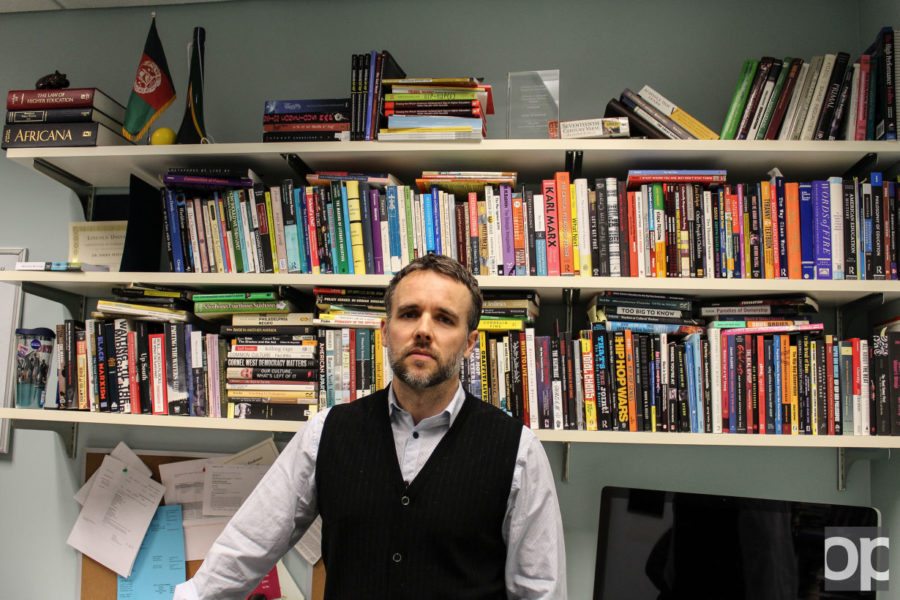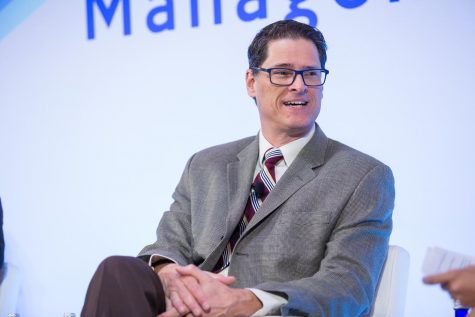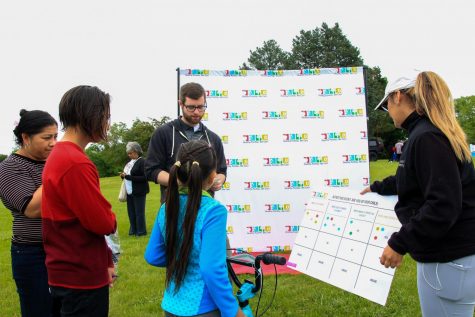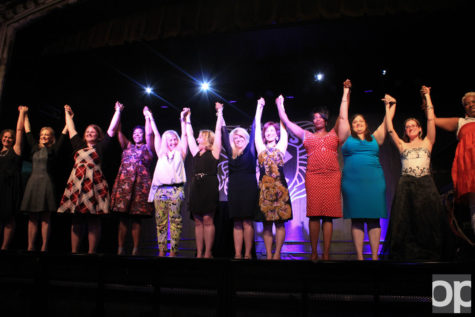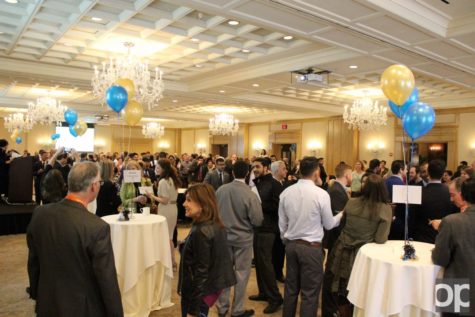Remixing the classroom
Education and hip-hop seem like two separate worlds. However, Dr. Emery Petchauer has merged these two passions of his to reinvent the way educators encourage participation and creativity in the classroom.
Petchauer became more involved in hip-hop culture during his time at Wheaton College outside of Chicago. He started out as a b-boy, breakdancing at local practice sessions, then apprenticed for a friend who deejayed.
At the same time, Petchauer studied education and went on to teach high school. He returned to school for his graduate degree and eventually came to Oakland University.
He currently teaches Introduction to Educational Studies and supervises a course for teacher mentors in the masters program. Additionally, Petchauer has taught Diversity in Classroom Management and the Education of Hip-Hop Culture.
In the Diversity in Classroom Management class, Petchauer had students study a video of emcees in a cypher (circle), rapping back and forth. He emphasized all of the different forms of participation in the cypher rather than the typical “raise your hand with the answer” format normally seen in classrooms.
“A lot of times when people have this idea of hip-hop and education, they think ‘oh, you use rap songs in the classroom,’” Petchauer said. “What got me really interested was to think about the deeper habits of the body and the deeper sensibilities that develop and thrive through hip-hop.”
These sensibilities include spontaneity, preparation, competition, cooperation, movement, individual expression, etc. These traits that encourage creativity in young minds do not always fit into typical school structures and are, at times, discouraged.
Petchauer hopes that through integrating these concepts into the foundation of a classroom environment, teachers will be better equipped to expand the concept of a traditional classroom and embrace their students’ differences.
“For me, there’s a lot we can learn from bringing in hip-hop texts and studying them,” he said. “But I’m more excited to think about what are these deeper ways of being that we develop by participating in hip-hop and how those are sometimes penalized in schools.”
Beyond his work at Oakland University, Dr. Petchauer runs an after-school hip-hop arts program at the Baldwin Center in Pontiac with local artist One Be Lo.
He has also authored two books speaking on integrating the worlds of hip-hop and education.
Petchauer emphasized that hip-hop exposed him to a much larger perspective than he would have typically experienced.
Through hip-hop, he has also been able to make connections across different communities. At Oakland’s campus, he is able to connect with Professor Kellie Hay, Rebekah Farrugia and V. Thandi Sulé, who merge the worlds of hip-hop and academia as well.
“The nexus of hip-hop and education allows me to connect these two worlds that, to me, are similar to one another, but are often seen as very separate,” Petchauer said.
By utilizing the foundations of this greater culture, teachers can better encourage students’ creativity and reinvent the classroom.



